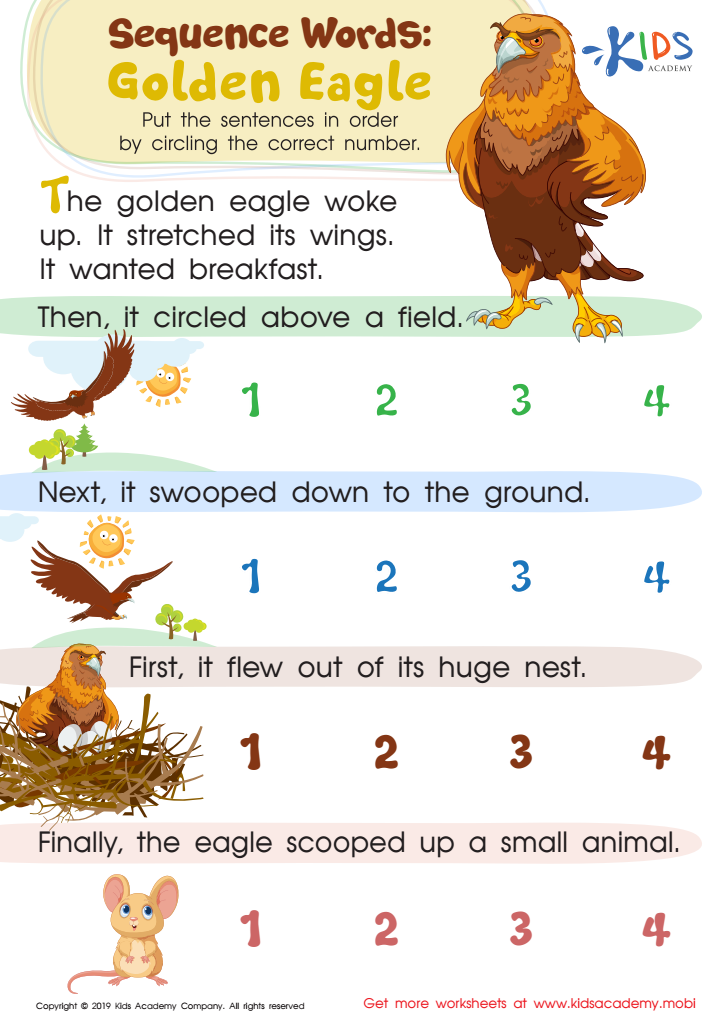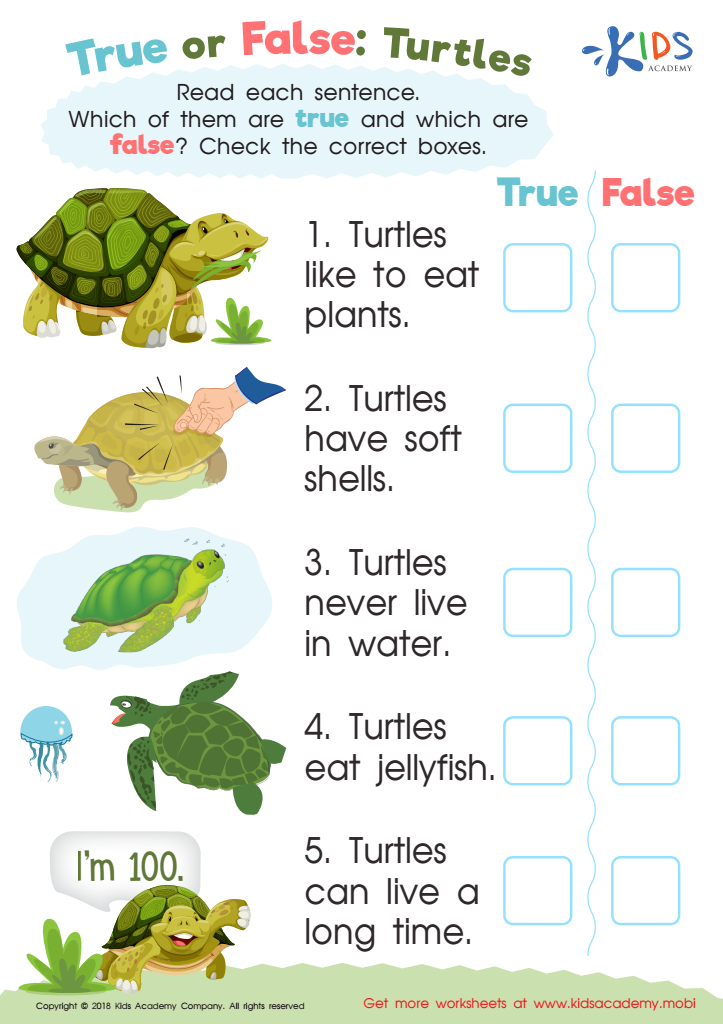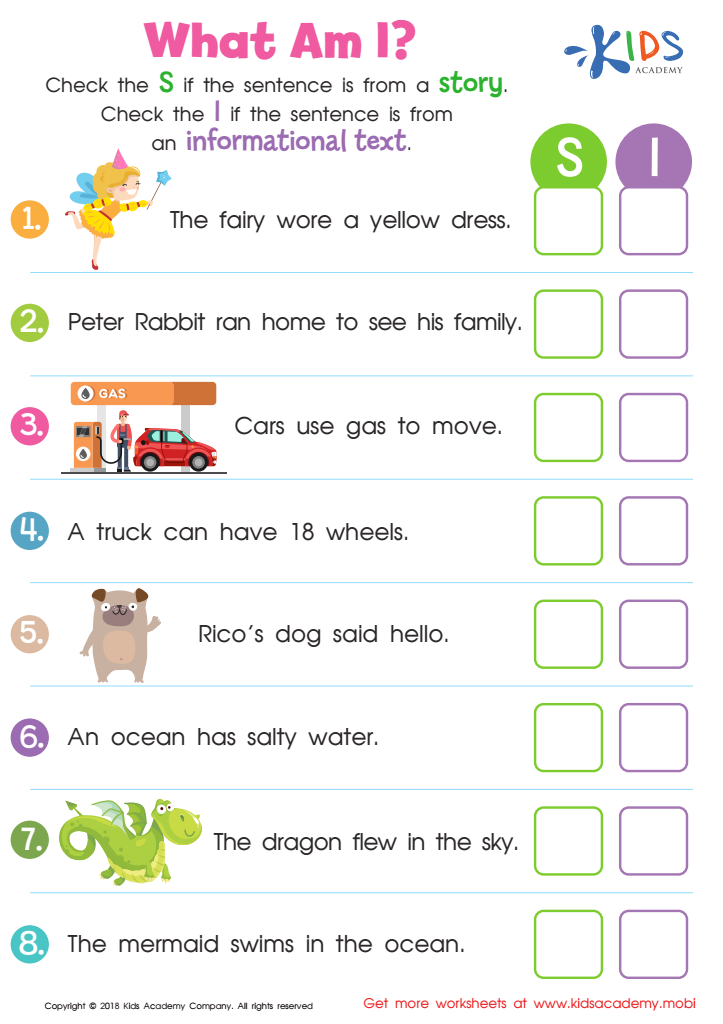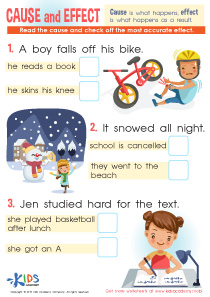Logical Reasoning Normal Reading Non-Fiction Worksheets
3 filtered results
-
From - To
Enhance your child's reading and critical thinking skills with our Logical Reasoning Normal Reading Non-Fiction Worksheets! Designed for early learners, these worksheets promote comprehension and analytical abilities through engaging non-fiction texts. Each activity encourages kids to explore diverse topics, fostering curiosity and a deeper understanding of the world around them. Ideal for classroom or at-home learning, these resources feature thought-provoking questions and activities that develop logical reasoning and reading comprehension skills. Help your child become a confident reader and thinker while discovering fascinating facts about science, geography, animals, and more. Get started today and watch them thrive in their learning journey!


Sequence Word Eagle Worksheet


True or False: Turtles Worksheet


What Am I? Worksheet
Parents and teachers should care about Logical Reasoning and Normal Reading Non-Fiction because these skills are foundational to a child's cognitive and educational development. Logical reasoning enhances critical thinking, enabling children to analyze information, draw conclusions, and solve problems effectively. This is crucial not only in academic settings but also in real-life situations, allowing kids to navigate complex social scenarios and make informed decisions.
Normal reading non-fiction, on the other hand, exposes children to a wide range of topics and perspectives and helps develop their vocabulary and comprehension skills. Engaging with non-fiction materials allows young learners to grasp concepts in science, history, and culture, fostering curiosity and a love for learning. It also promotes the ability to distinguish fact from opinion, which is essential in today’s information-saturated environment.
Together, these skills cultivate well-rounded individuals who are better prepared for advanced studies and active participation in society. By encouraging logical reasoning and exposure to non-fiction literature, parents and teachers play a crucial role in equipping children with the tools necessary for lifelong learning and critical engagement with the world around them. Supporting these skills will ultimately lead to more informed, capable, and resilient individuals.
 Assign to My Students
Assign to My Students















